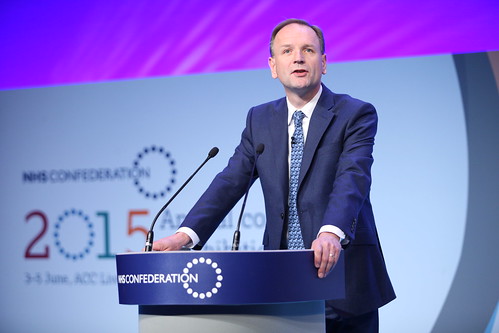Covid inquiry: Hancock ‘wanted to decide who should live or die’ if NHS overwhelmed
Simon Stevens #SimonStevens

Matt Hancock told officials that he – rather than the medical profession – “should ultimately decide who should live or die”, if the NHS was overwhelmed during the pandemic, the Covid-19 inquiry has been told by the former head of NHS England
“Fortunately this horrible dilemma never crystalised,” Simon Stevens said in a witness statement.
Hancock’s position, which materialised during a planning exercise at the Cabinet Office in February 2020, was a different one from his predecessor, Jeremy Hunt, who had wanted such decisions to be reserved for clinical staff.
Lord Stevens told the inquiry on Thursday that this ethical question was never resolved and cropped up again during the pandemic when “rationing” of NHS services was discussed.
His witness statement referred to the “Operation Nimbus” planning exercise, which he said was helpful in terms of outlining the pressures government departments might face.
But he added in the statement: “It did however result in – to my mind at least – an unresolved but fundamental ethical debate about a scenario in which a rising number of Covid-19 patients overwhelmed the ability of hospitals to look after them and other non Covid-19 patients.”
“The secretary of state for health and social care took the position that in this situation he – rather than, say, the medical profession or the public – should ultimately decide who should live and who should die. Fortunately this horrible dilemma never crystalised.”
Stevens declined to criticise Hancock during his appearance, while also telling the hearing he saw no reason not to believe Boris Johnson had confidence in him as NHS England chief.
Stevens was shown messages between Dominic Cummings, Boris Johnson’s top aide at the time, and Matt Hancock from January and February 2020 that discussed moving him from his NHS post.
In one message, Cummings complained about Stevens and Hancock “bullshitting again”.
“By the standard of Dominic Cummings, that is one of his gentler epithets,” Stevens said. He said that Hancock did not encourage him to quit during Covid and that there was no sense he was – in the words of counsel Andrew O’Connor KC – “defying” Downing Street by staying on.
Asked if Johnson and Cummings trusted him, Stevens said he could not speak for the latter but added that his regular interactions in the autumn with the “prime minister did not give me a different sense of that”.
Earlier, Stevens told the inquiry that senior ministers “sometimes avoided” Cobra meetings chaired by Matt Hancock in the early days of the pandemic.
In his witness statement he said the meetings “usefully brought together a cross-section of departments, agencies and the devolved administrations”.
“However, these meetings were arguably not optimally effective. They were very large, and when Cobra meetings were chaired by the health and social care secretary other secretaries of state sometimes avoided attending and delegated to their junior ministers instead.”